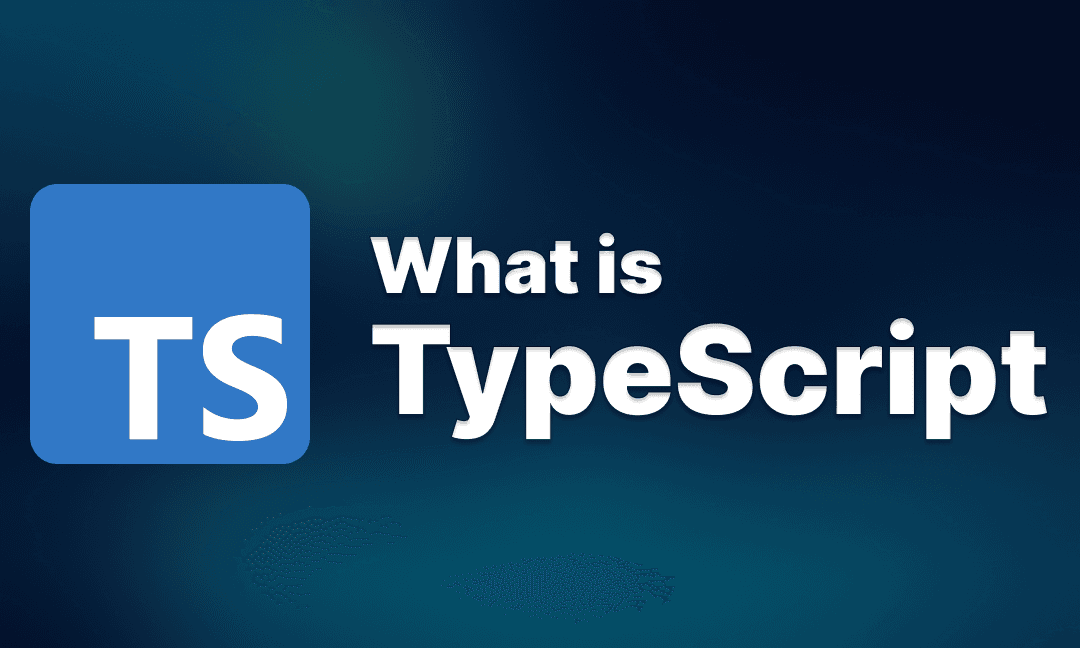
What is TypeScript
TypeScript is an open-source programming language. It adds static typing to JavaScript, making it more robust and error-resistant. TypeScript compiles to ordinary JavaScript, allowing developers to construct scalable and maintainable code while taking use of the latest JavaScript capabilities and platform compatibility.
TypeScript is an open-source programming language that extends JavaScript's functionality by incorporating extra features for better developer productivity and code maintainability.
Since it is a superset of JavaScript, all legitimate JavaScript code is likewise legitimate TypeScript code. The optional static typing that TypeScript offers allows developers to specify the types of variables, function parameters, and return values at compile-time, identifying any problems early in the development process. TypeScript expands the syntax and functionalities of JavaScript.
One of TypeScript's key objectives is to alleviate some of the difficulties that come with writing large-scale JavaScript applications, where dynamic typing can result in runtime mistakes and make codebases more difficult to comprehend and manage.
Static types are introduced by TypeScript to assist developers in finding type-related errors before the code is even executed, resulting in more dependable and resilient applications.
To make TypeScript code interoperable with all current browsers and platforms, the TypeScript compiler transpiles TypeScript code into conventional JavaScript code.
This enables developers to offer performant and broadly supported JavaScript code to end users while still taking advantage of TypeScript during development.
Developers can take advantage of the following TypeScript language features to enhance their development workflow:
- Static Typing: With TypeScript, programmers may formally define the kinds of variables, function parameters, and return values. Better code documentation, tool assistance, and early type-related error detection are all benefits of this.
- The use of interfaces and type aliases in TypeScript enables programmers to construct unique types. By defining reusable and self-descriptive types, these features improve the readability and maintainability of code.
- Enum Types: When working with certain sets of related values, enums in TypeScript allow developers to specify named sets of constant values, making code more expressive and readable.
- Union and Intersection Types: When working with complicated data structures, TypeScript's union and intersection types give developers the freedom and expressiveness they need to mix various types.
- Type Inference: Because TypeScript has type inference capabilities, the compiler can often automatically determine types, which eliminates the need for explicit type annotations and results in more concise code.
- Generic programming is supported by TypeScript, which enables programmers to design functions and classes that can operate on a wide range of data types while improving code reuse and type safety.
- Aspect-oriented programming and dependency injection are made possible via decorators, which offer a potent mechanism to add metadata and behavior to classes, methods, and properties.
- Nullish Coalescing and Optional Chaining: TypeScript supports contemporary JavaScript features like nullish coalescing and optional chaining, which make code simpler and handle probable null or undefined values more securely.
Due to its capacity to find possible errors early in the development process, enhance code organization, and facilitate better cooperation within development teams, TypeScript is frequently used by developers, especially in large-scale projects. It enjoys broad community support, a robust ecosystem of tools and libraries, and it keeps developing thanks to frequent upgrades and new language features.
All in all, TypeScript is a strong language option for contemporary web development since it empowers programmers to create more resilient and manageable code and offers easy integration with the enormous JavaScript ecosystem.